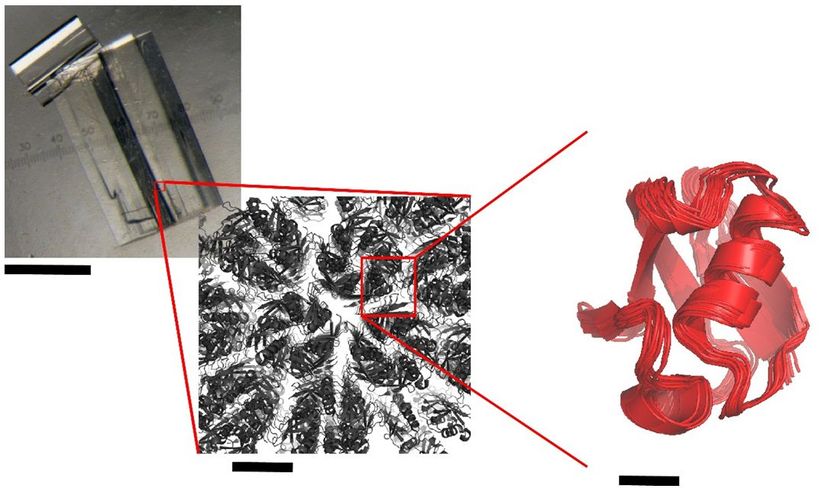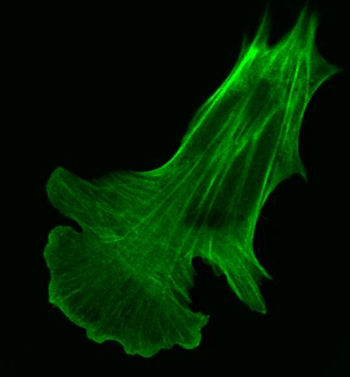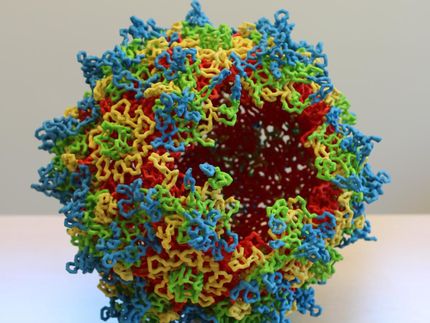Trophos initiates pivotal efficacy study of olesoxime in Spinal Muscular Atrophy
Trophos SA announced the initiation of the pivotal efficacy study of olesoxime in the rare, neurodegenerative condition, Spinal Muscular atrophy (SMA). The study is substantially funded by Trophos’ partnership with the Association Française contre les Myopathies (AFM). The trial protocol has benefited from the EMA Protocol Advice procedure. Efficacy results are expected in 2013.
Spinal Muscular Atrophy is an autosomal recessive genetic disease that affects the motor neurons of the voluntary muscles that are used for activities such as crawling, walking, head and neck control, and swallowing. Approximately 1 in 6000 babies born are affected and about 1 in 40 people are genetic carriers. SMA patients are divided into four subtypes depending on disease onset and severity but all suffer from degeneration of motor neurons controlling voluntary muscles with proximal limb and trunk muscle weakness leading to respiratory distress and in the most severe cases, ultimately death.
“SMA is a debilitating neuromuscular disease and there is an immense need for a treatment that can slow down or prevent the loss of muscle function in SMA patients, for whom no specific treatment exists today," said Christian Cottet, managing director of the AFM. “The AFM has been working with Trophos since 2001 and the initiation of this clinical study with olesoxime in SMA is the fruit of our long standing partnership. Thanks to the donations to the French Telethon, the AFM is supporting 36 clinical trials involving 30 different diseases. These trials accelerate the development of the therapies of tomorrow: gene therapy, stem cells, pharmacogenetics - for rare diseases and common diseases.”
Olesoxime (TRO19622) is the lead compound of the Trophos' proprietary cholesterol-oxime compound family of mitochondrial pore modulators. Preclinical studies have demonstrated that olesoxime promotes the function and survival of neurons and other cell types under disease-relevant stress conditions through interactions with the mitochondrial permeability transition pore (mPTP) and olesoxime has been shown to be active in the NSE-Cre F7/F7 model of SMA.
Olesoxime is currently undergoing a pivotal efficacy study in another rare motor neuron disease, Amyotrophic Lateral Sclerosis (ALS), which has recruited 512 patients and for which results are expected in Q4 2011. Olesoxime has successfully completed a phase 1b study in SMA patients, having previously completed phase I/Ib studies in healthy volunteers and ALS patients. These clinical trials demonstrated that the product is well-tolerated and has an excellent safety profile. They also showed that once-a-day oral dosing achieves the predicted exposure level required for efficacy, based on preclinical models.
Most read news
Other news from the department research and development

Get the life science industry in your inbox
By submitting this form you agree that LUMITOS AG will send you the newsletter(s) selected above by email. Your data will not be passed on to third parties. Your data will be stored and processed in accordance with our data protection regulations. LUMITOS may contact you by email for the purpose of advertising or market and opinion surveys. You can revoke your consent at any time without giving reasons to LUMITOS AG, Ernst-Augustin-Str. 2, 12489 Berlin, Germany or by e-mail at revoke@lumitos.com with effect for the future. In addition, each email contains a link to unsubscribe from the corresponding newsletter.
Most read news
More news from our other portals
See the theme worlds for related content
Topic world Gene therapy
Genetic diseases once considered untreatable are now at the center of innovative therapeutic approaches. Research and development of gene therapies in biotech and pharma aim to directly correct or replace defective or missing genes to combat disease at the molecular level. This revolutionary approach promises not only to treat symptoms, but to eliminate the cause of the disease itself.

Topic world Gene therapy
Genetic diseases once considered untreatable are now at the center of innovative therapeutic approaches. Research and development of gene therapies in biotech and pharma aim to directly correct or replace defective or missing genes to combat disease at the molecular level. This revolutionary approach promises not only to treat symptoms, but to eliminate the cause of the disease itself.
Last viewed contents

Imprisoned molecules move - Crystal cage does not hinder molecule movement

Novel synthesis of fluorinated molecules with potential in drug research developed - The new synthetic method relies on two fundamentally challenging chemical processes
Imaging method has potential to stratify head and neck cancer patients
Amorfix A(4) Assay Provides New Insights Into Alzheimer's Disease Pre-clinical Development Mouse Models - Amorfix Quantifies Rate of Accumulation of Amyloid in Seven Mouse Models of AD
Aterovax Signs Collaboration with Biomnis to Offer sPLA2 Activity Testing in Pharmaceutical Clinical Research

Max Planck Innovation awards license for actin marker LifeAct - Max Planck Innovation and ibidi sign license agreement for cytoskeleton research

Caterpillar-like bacteria crawling in our mouth - Evolution of longitudinal division and multicellularity in oral bacteria
Cell Medica strengthens team with key appointment to senior management
Algeta elects US pharma industry executives Judith Hemberger and Kapil Dhingra to its Board of Directors






















































